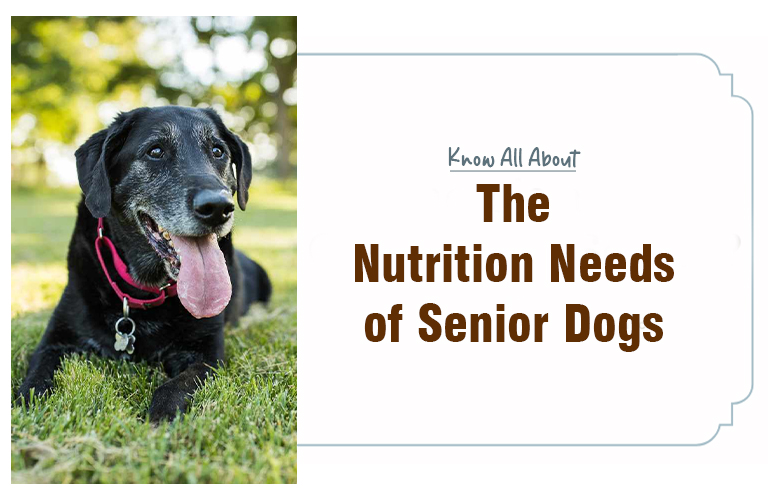If you find your dog gaining weight at an unusual rate, their fur greying, and their movements getting slower, know that they are aging. Yes, you heard it right. It is not just humans; pets also undergo health challenges as they age. While we take special care of our senior family members, our old furry family members also require support from their human companions for aging healthily.
Read on to find out the common health problems your geriatric canine can face and the best supplements for senior dogs that can provide them with the required nutrition to keep them healthy:
When to consider a dog as a senior dog?
Although there is no universally accepted age by which a dog is considered as senior, a dog that has completed 75% of their expected lifespan is usually perceived as a senior dog. The lifespan again depends on multiple factors like genetics, diet and the overall care a dog receives during their lifetime. Usually, dogs of smaller breeds have longer lives compared to their larger breed counterparts. A general notion is to consider dogs around the age of 7 years as senior dogs.
Health challenges in senior dogs
Your pooch may still be a ‘baby’ for you, but they will need assistance in coping up with the following health problems in their older age:
- Loss of appetite
- Frequent digestive upsets
- Joint pain
- Loss of mobility
- Osteoarthritis
- Hip dysplasia
- Skin and coat issues
- Obesity
- Diabetes
- Liver and kidney disease
- Cognitive decline
Senior dog supplements
As your pooch ages, their nutrition requirements change. Supplementing their diet with the right nutrition helps minimize the effects of aging. Here is a list of the best supplements for senior dogs that can assist your furry buddy in growing older with the least health trouble:
Probiotics & prebiotics
Probiotics help in improving the number and variety of bacteria in your geriatric dog’s gut. Adding probiotics to your pooch’s diet supports digestion and improves their bowel health. Prebiotics are fibres that help in increasing the number of good bacteria and support the work of probiotics, thus assisting in improving your senior dog’s gut health.
Antioxidants
Antioxidants help in controlling the free radicals. Excessive free radicals in the body can accelerate aging and can lead to chronic diseases in your beloved four-legged friend. Some Vitamins like A, C and E work as antioxidants and help neutralize the effects of free radicals in your pet’s body. Adding antioxidants to your old canine’s diet also helps in improving their memory and cognitive function.
Digestive enzymes
Digestive enzymes are produced naturally in a dog’s body. But, the rate slows down with the increasing age of your pooch. Digestive enzymes play an important role in breaking down food and helping your dog absorb nutrients. To avoid digestive upsets in older dogs, it is required to add more enzymes to their food.
Omega-3 fatty acids
Being one of the best senior dog supplements, omega-3 fatty acids help in reducing arthritis-related problems like joint inflammation and joint pain. Omega-3 fatty acids also give relief in skin-related allergies and dry skin problems and enhance the skin and coat health of your old furry buddy.
Glucosamine and chondroitin
Glucosamine is considered one of the building blocks of cartilage that provides support to your furry friend’s joint health. Chondroitin controls the decaying of cartilage and supports its growth. A senior dog supplement that contains both glucosamine and chondroitin works best in improving your old furry pal’s joint health.
Vitamins
Vitamin B complex, including Vitamins B1, B2, B6, and B12, helps tackle fatigue and assist in improving your pooch’s appetite. Whereas, Vitamins D, C and E assist in improving your furball’s brain, heart, eye, kidney and liver function. Vitamins A and E are also important for maintaining a healthy immune system. Adding these vitamins to your geriatric pet’s diet proves to be beneficial in improving their overall health.
Though these are some of the most common supplements for senior dogs, it is best to take the advice of a veterinarian before adding anything new to your pet’s diet to get the desirable results.
To sum up
Senior dogs, just like older humans, need appropriate nutrition to remain in good shape. Various senior dog supplements are available in the market which can assist you in keeping your aging dog’s health in check. You can select the best senior dog supplement to control your furry old pal’s health deterioration and prepare an ideal diet plan for them in consultation with your veterinarian.



